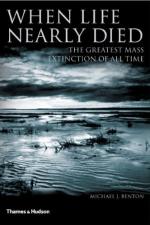|
This section contains 750 words (approx. 3 pages at 300 words per page) |

|
Extinction is the permanent loss of a species or another taxon of organisms (such as a genus, family, order, or phylum), occurring over all of its range. Extinction has occurred naturally throughout the history of life on Earth. In fact, biologists believe that the species that live today are only a small fraction of the total number that have ever lived. For example, the remarkable fossil record of the Burgess Shale of British Columbia demonstrates that many phyla of invertebrates lived at the beginning of the Cambrian era, about 570-million years ago, during an evolutionary proliferation of the first complex (or metazoan) animals. Most of these phyla are now extinct. Biologists interpret the 15-20 extinct phyla of the Burgess Shale as representing some fantastic evolutionary experiments in the form and function of invertebrates. Modern palaeontologists only know about these extinct creatures because of extraordinary...
|
This section contains 750 words (approx. 3 pages at 300 words per page) |

|


